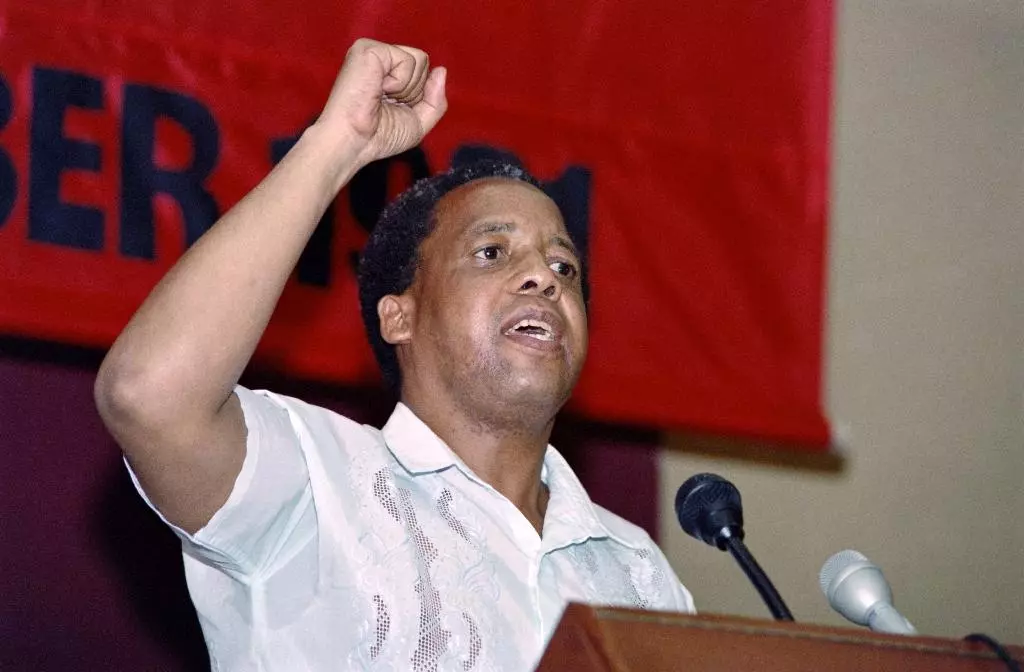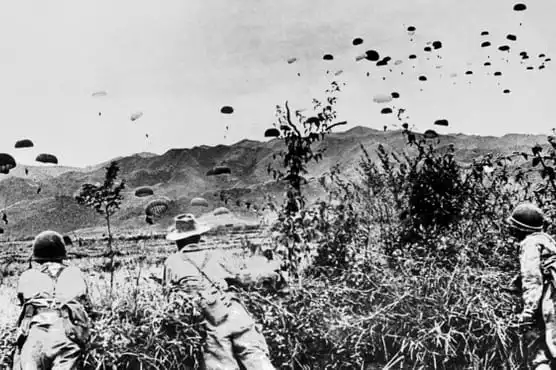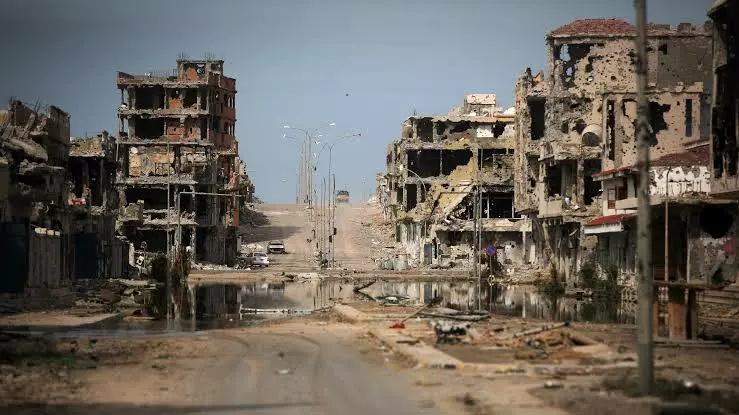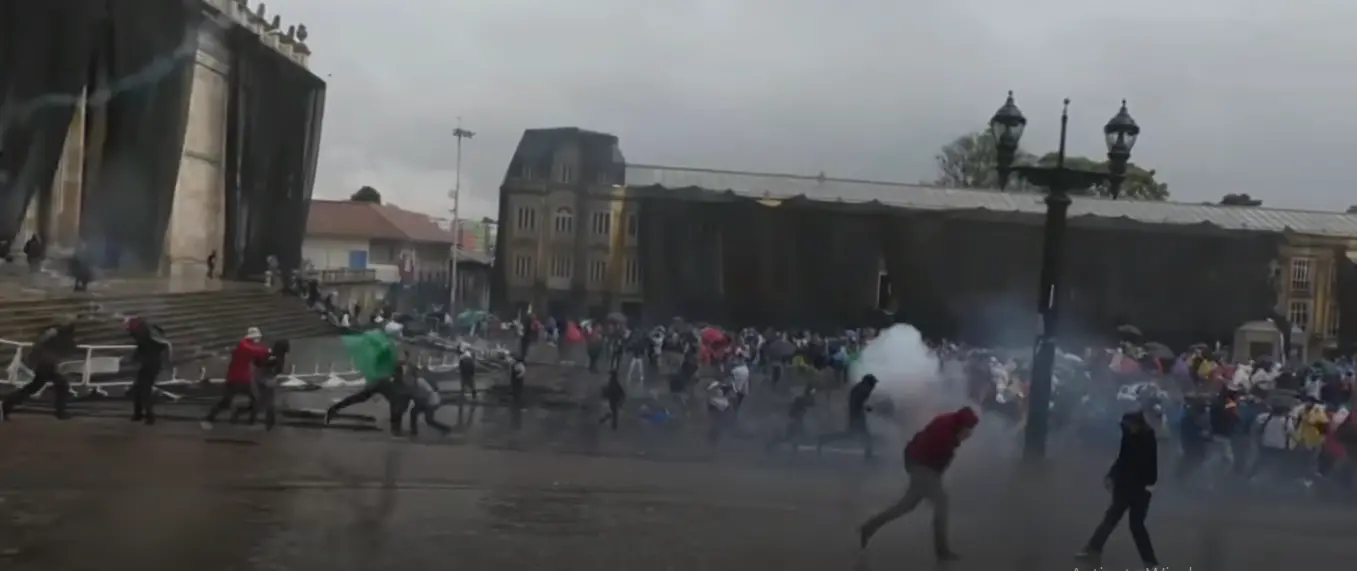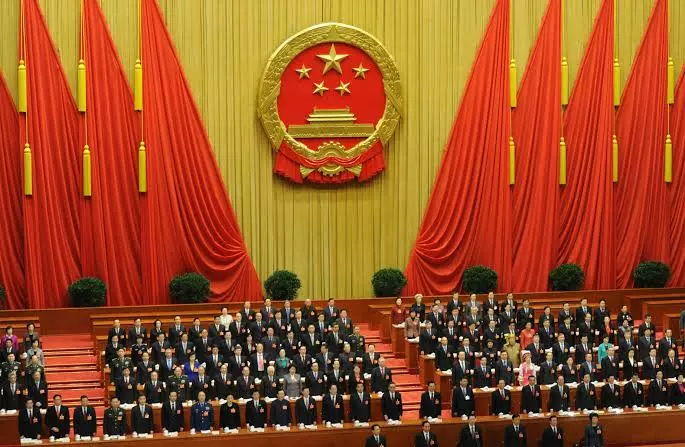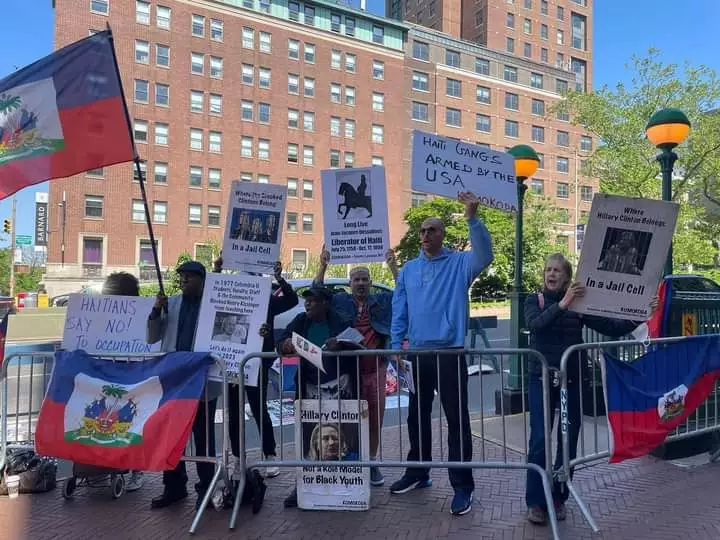The release on bail of Janusz Walus, murderer of Chris Hani, by the Constitutional Court of South Africa has created an atmosphere of outrage and incredulous disgust among the ordinary people of South Africa towards the liberal, bourgeois-democratic system in South Africa — which superseded apartheid in 1994.
Who was Chris Hani?
He was born in 1942, to a Xhosa-speaking family in a rural village in the south-east of South Africa. His name at birth was Martin Thembisile Hani, ‘Chris’ was a nickname he acquired during the struggle. He was one of 3 children: another 3 died in infancy. His father went to the urban areas to find work while his mother looked after the family homestead, like most rural African boys, in his younger years, Thembisile had to herd the family’s cattle.
Hani’s first school was a Roman Catholic school in which he gained a love for Latin, later going on to earn a BA degree in English and Latin literature. He joined the ANC Youth League at the age of 15 and his political activism started then. In his own words:
“In 1959 I went over to university at Fort Hare where I became openly involved in the struggle, as Fort Hare was a liberal campus. It was here that I got exposed to Marxist ideas and the scope and nature of the racist capitalist system. My conversion to Marxism also deepened my non-racial perspective.
“My early Catholicism led to my fascination with Latin studies and English literature. These studies in these two courses were gobbled up by me and I became an ardent lover of English, Latin and Greek literature, both modern and classical. My studies of literature further strengthened my hatred of all forms of oppression, persecution and obscurantism. The action of tyrants as portrayed in various literary works also made me hate tyranny and institutionalised oppression.”
In 1961, Chris Hani joined the underground South African Communist Party and in 1962 the liberation army of uMkhonto we Sizwe (MK).
Chris Hani went on to become a member of the MK’s Western Cape leadership dubbed the ‘Committee of Seven’. His encounters with the law began with his arrest at a police roadblock in 1962. He was found to be in possession of pamphlets opposing the government’s notorious policy of detention without trial. He was subsequently charged under the Suppression of Communism Act. Granted bail, he attended the 1962 ANC Conference in Botswana. On his return to South Africa, he was arrested at the border. He was tried and given an 18-month jail sentence. In 1963, while out on bail pending an appeal, Hani went underground on the advice of the ANC leadership where he remained for about four months, until he left to the Soviet Union where he was given military training.
Returning from the USSR, Hani was sent to Zambia where MK shared military camps with the Zimbabwe People’s Revolutionary Army (ZPRA) armed wing of the Zimbabwe African People’s Union led by Joshua Nkomo.
By 1967, the structures of the ANC and SACP had been destroyed within South Africa, the decision was then made by the leadership of the SACP and ANC in exile to join with the Zimbabwean liberation forces and fight their way down to South Africa. John Dube of ZPRA became Commander of the joint operation with Chris Hani as Political Commissar. The operation was conducted from Zambia and started with the crossing of the Zambezi River. This was to be known in history as the Wankie Campaign, the 79 man joint detachment crossed the Zambezi on 30th July 1967 and was to be named the ‘Luthuli Detachment’ after ANC President Albert Luthuli who had died a few days before. Hani was present in three battles during the Wankie Campaign (fought in the Wankie Game Reserve against Rhodesian forces). The campaign, though unsuccessful, was the beginning of serious guerrilla war in both Zimbabwe and South Africa.
Hani escaped into Botswana, only to be arrested and detained in prison for weapons possession. But he was able to return to Zambia at the end of 1968 to continue his work with ZPRA. The abandonment of those who fought in Wankie by the ANC leadership prompted Chris Hani an 5 others to compile and sign the ‘Hani Memorandum’, a scathing attack on some members of the ANC leadership. Initially, signatories were arrested and threatened with the death penalty, but wiser heads prevailed and in 1969, the Morogoro Conference of the ANC established the Revolutionary Council to run the armed struggle. Although headed by ANC President Oliver Tambo, the majority of its members were Communists, not only that, but the ANC in exile was to officially include non-Africans, some of whom were on the Revolutionary Council. [From 1955 the Congress Alliance had consisted of the African National Congress, the South African Indian Congress, the Coloured People’s Congress, the Congress of Democrats (progressive whites) and the South African Congress of Trade Unions]. Soon after, the membership of Hani and other signatories was restored.
In 1974 Hani re-entered South Africa to establish an underground infrastructure for the ANC in the Western Cape. He entered the country from Botswana on foot and spent four months in the country, based in Johannesburg. He helped set-up underground units and a communications system. In addition, various routes through the country were established.
In 1978, following the death of ZPRA Commander, Nikita Mangena, Hani became interim Commander of ZPRA until the appointment of Lookout Masuku.
By 1982, Hani had become the focus of several assassination attempts, including at least one car bomb. He was transferred from the Lesotho capital, Maseru, to the centre of the ANC political leadership in Lusaka, Zambia. That year he was elected to the membership of the ANC National Executive Committee, and by 1983 he had been promoted to Political Commissar of the MK, working with student recruits who joined the ANC in exile after the 1976 Soweto uprising.
Hani continued his rise through the ANC ranks and in 1987 he became the Chief of Staff of MK. During the same period he rose to a senior position within the SACP.
After the unbanning of ANC and SACP on 2ndFebruary 1990, Chris Hani returned to South Africa and became a charismatic and popular speaker in the townships. By 1990 he was known to be a close associate of Joe Slovo, the General Secretary of the SACP. When Slovo announced in 1991 that he had cancer, Chis Hani became the new General Secretary and in 1992 he stepped down from his position of Chief of Staff of uMkhonto we Sizwe.
Like all SACP members, Hani was also a member of the ANC.
During the years of exile, Thabo Mbeki had been groomed to assume the leadership of the ANC after Tambo, Mandela and other leaders off the older generation had gone. From 1985, Thabo Mbeki had been instrumental in organising a succession of meetings, mainly in Lusaka, Zambia, with Gavin Relly, Chairman of the Anglo-American Corporation and other white business men who were mindful of the fact that South Africa was becoming ungovernable and that apartheid was no longer profitable. The businessmen agreed to support the end of apartheid and the installation of an ANC government on the understanding that there would be no nationalisation or any move towards socialism.

When the ANC became legal in 1990, it soon became obvious that Chris Hani was far, far more popular than Thabo Mbeki and with the ageing Mandela making it clear that he would be President for only one term, it became obvious that after Mandela, the next President of the Republic of South Africa would be Chris Hani, General Secretary of the South African Communist Party, a man bitterly opposed to corruption.
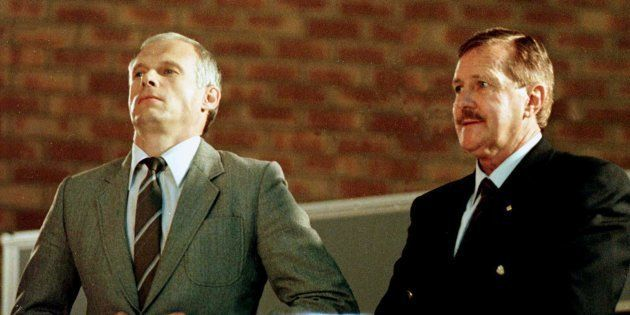
On 10thApril 1993, as he returned home to the racially mixed suburb of Dawn Park, Boksburg (near Johannesburg), as Hani got out of his car, he was assassinated by Janusz Walus, an anti-Communist Polish refugee who had close links to the White nationalist AWB. Thanks to an observant white Afrikaner woman neighbour, the car was identified and Walus arrested.Also implicated in the assassination was Conservative Party MP Clive Derby-Lewis.Walus and Derby-Lewis were captured and sentenced to death. But due the new Constitution, the death sentence was abolished and both sentences commuted to life imprisonment.
In 1997 Walus and Derby-Lewis applied for amnesty through the Truth and Reconciliation Commission (TRC) hearings. The Commission gave amnesty to murderers and torturers of the apartheid era in return for telling the whole truth of their crimes and in some cases revealing where their victims were buried.Some were released after showing remorse.
In the case of Walus and Derby-Lewis, it was clear that they were neither remorseful nor were they telling the whole truth of who was involved. The pistol used to kill Chris Hani was government issue and it is to this day, unknown how they obtained it.
It is clear that despite being officially ‘out on parole’, Walus will soon appear in Poland. He is already an icon of Polish fascists and in the current political situation with the NATO War Against Russia, this in itself is very bad
Neither Walus, nor Derby-Lewis ever showed remorse and have appeared proud of their deed, Derby-Lewis died in 2016 of cancer a short time after being released on medical parole.
The release of Walus has been consistently opposed by Dimpho Hani, the wife of Chris and the South African Communist Party; Minister of Justice, Ronald Lamola refused to sign a parole order but has now been instructed by the Constitutional Court to do so.
In 1996, the South African government under the influence of Vice-President Thabo Mbeki introduced the neoliberal ‘Growth, Employment And Redistribution programme (GEAR). This has led to an increase in unemployment, corruption at every level and criminality.
The assassination of a single leader at a critical moment can change the course of history.
Had Chris Hani have become Vice-President under Mandela and then President, it is clear that the problems now being faced by South Africans would be far less severe.As one commentator stated:
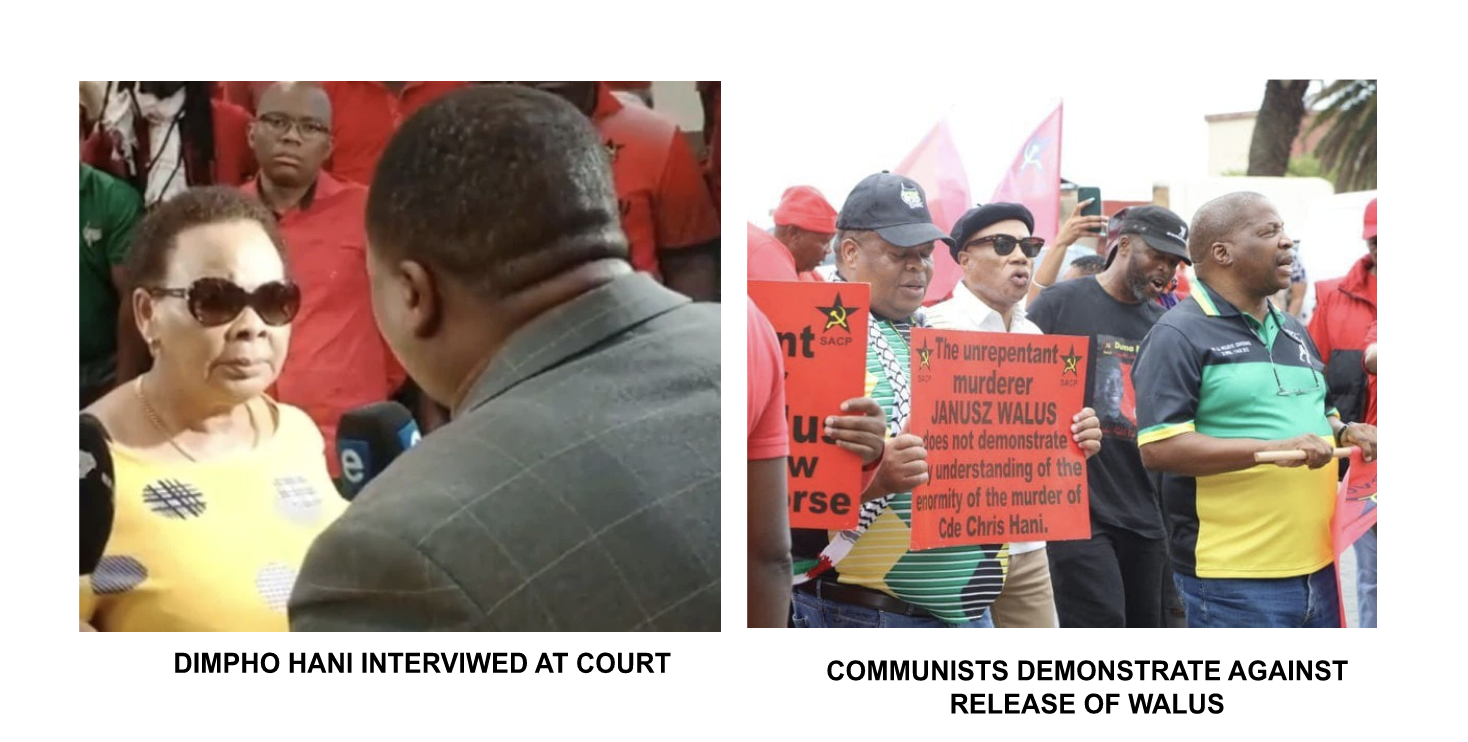
“The milk and water Truth and Reconciliation Commission refused to give Walus amnesty because it was obvious he was refusing to tell the whole truth. Now at a time when Poland is involving itself with the War against Russia, this man is about to become a fascist icon, thanks to a load of liberal judges unconnected to the people. When Walus killed Hani, he killed the hopes of a nation and opened wide the doors of corruption.”
If you are a socialist, We need you now!✕
We are proudly biased towards Anti Capitalist, Anti Imperialist, Anti fascist! We believe we don’t need to mention you the importance of marxist magazine in this era! We are depending on our comrades only! Make an investment of $2.5/m in making a quality journal inclined to Marxism Leninism! Your one potential subscription helps us to maintain our global team! Subscribe and get access of all exclusive content available at the magazine section!
